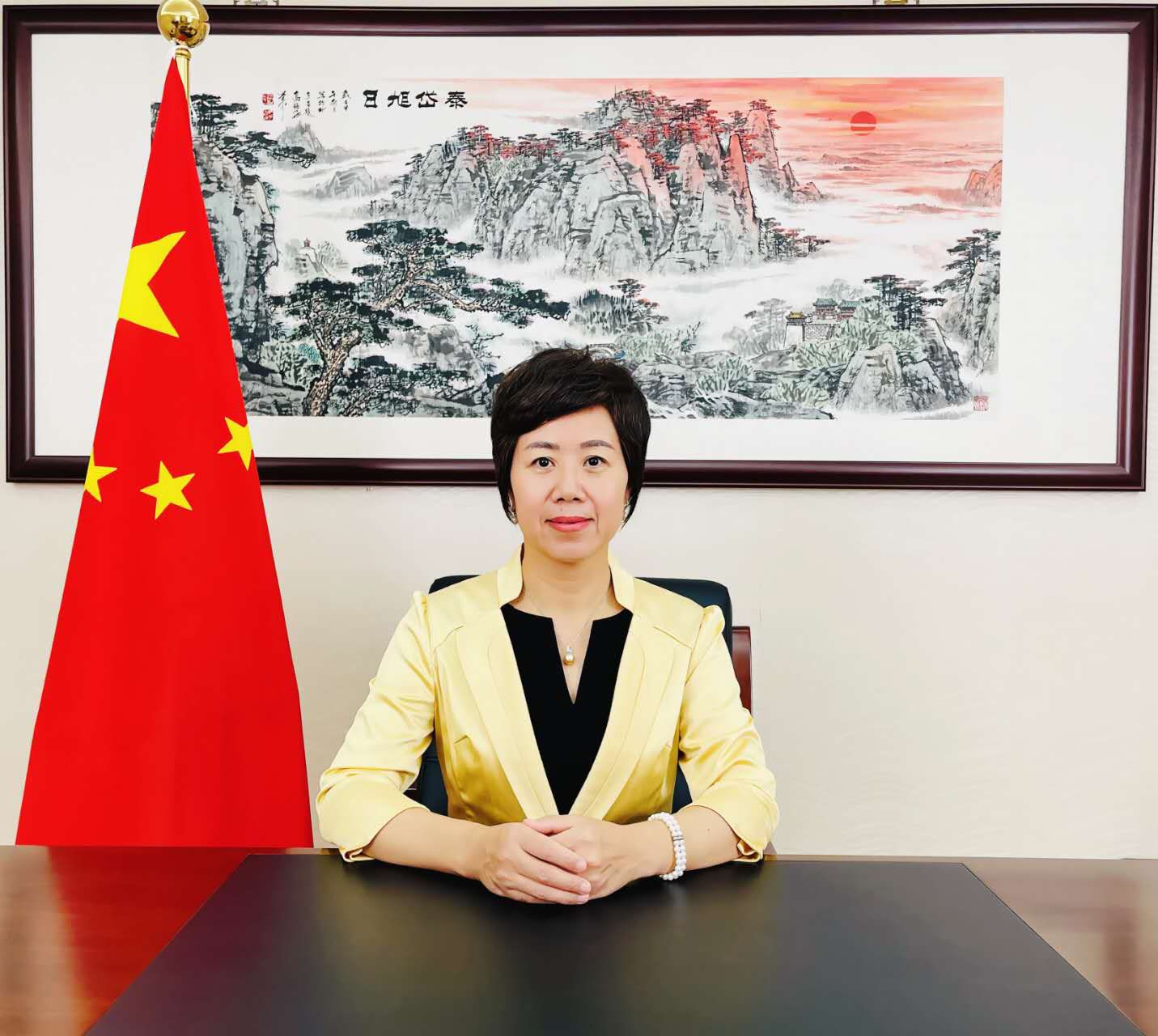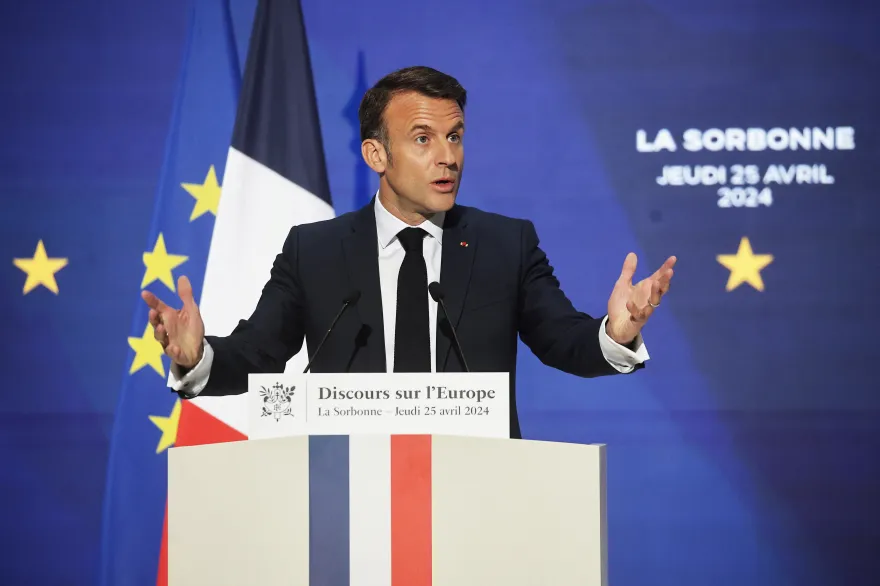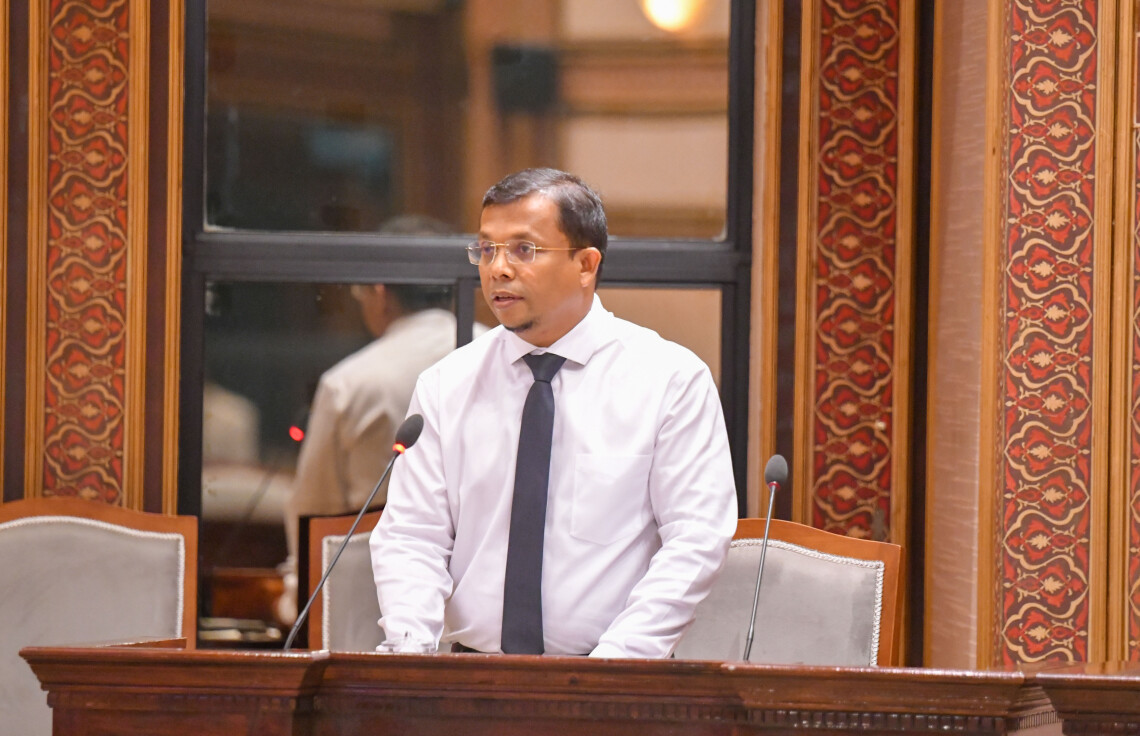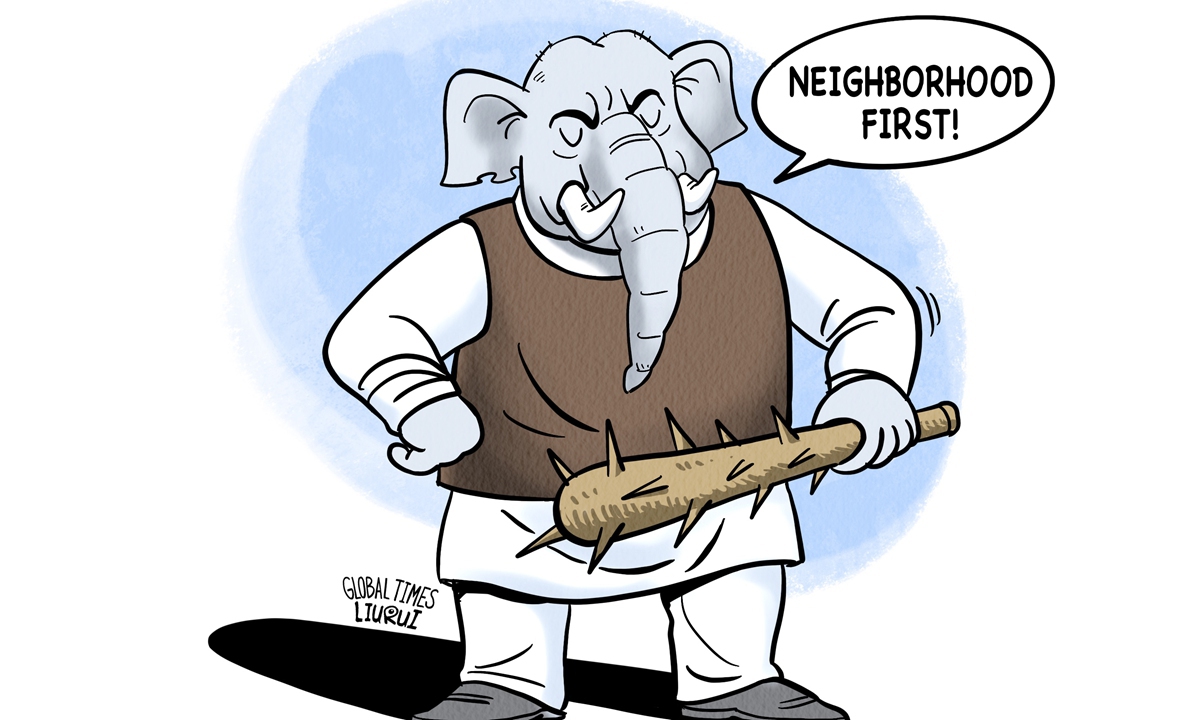An Interview with H.E. Ambassador Wang Lixin by Maldivian Media on the 20th CPC National Congress
Q: On 22nd October, the much-anticipated 20th National Congress of the Communist Party of China was successfully concluded with worldwide attention. What is the significance of the 20th National Congress of the Communist Party of China to the CPC and China?
A: The 20th National Congress of the Communist Party of China is an event of great importance. It takes place at a critical time as the entire Party and the Chinese people of all ethnic groups embark on a new journey to build China into a modern socialist country in all respects and advance toward the Second Centenary Goal. It is a congress of holding high our banner, pooling our strength and forging ahead in unity. The Congress, holding high the great banner of socialism with Chinese characteristics and fully implementing the Thought on Socialism with Chinese Characteristics for a New Era, analyzed the international and domestic situation, reviewed the work of the past five years and the great changes of the new era decade, and explained the Chinese characteristics, essential requirements, and other important issues in adapting Marxism to the Chinese context and the needs of our times and taking a Chinese path to modernization. The Congress has made major strategic plans for taking China on a new journey toward building a modern socialist country in all respects and advancing the great rejuvenation of the Chinese nation on all fronts, clearly defined the course and action guide for advancing the cause of the Party and the country in the New Era and on the new journey toward the Second Centenary Goal. The report to the Congress is a political manifesto and a guide for action for the Communist Party of China to bring Chinese people together to secure a new victory of socialism with Chinese characteristics. It is also a programmatic document of Marxism.
Q: What do you think is the most important achievement of the 20th National Congress of the Communist Party of China?
A: The most important achievement of this Congress is that it has elected the new leadership of the CPC Central Committee with Comrade Xi Jinping at its core, which promotes and practices democracy throughout the process and reflects the common aspiration of the whole Party and the whole nation, establishing Comrade Xi Jinping’s core position on the Party Central Committee and in the Party as a whole and establishing the guiding role of Xi Jinping Thought on Socialism with Chinese Characteristics for a New Era. World history has repeatedly proven that a strong leadership core and scientifically advanced theories are the key to a country’s development and growth. With President Xi Jinping continuing to steer the ship and with the correct guidance of Xi Jinping’s Thought on Socialism with Chinese Characteristics for a New Era, we will certainly be able to achieve the development strategies and goals established at the 20th CPC National Congress.
Q: How does the 20th CPC National Congress review the work carried out in the past five years and the great changes in the past decade and in New Era China?
A: The five years since the 19th National Congress have been truly momentous and extraordinary. The Party Central Committee has pursued a strategy of national rejuvenation amid global changes of a magnitude unseen in a century. It has rallied the people and led them in solving a great number of problems that had long gone unsolved, securing many accomplishments that hold major future significance, and achieving impressive advances in the cause of the Party and the country.
Ten years have passed since the Party’s 18th National Congress. The past decade marked three major events of great immediate importance and profound historical significance for the cause of the Party and the people: We embraced the centenary of the Communist Party of China; we ushered in a new era of socialism with Chinese characteristics; and we eradicated absolute poverty and finished building a moderately prosperous society in all respects, thus completing the First Centenary Goal. These were historic feats—feats accomplished by the Communist Party of China and the Chinese people striving in unity, feats that will be forever recorded in the Chinese nation’s history, and feats that will profoundly influence the world.
Q: Over the past hundred years, the CPC has successfully led the Chinese people in making great development achievements. What’s the secret to its success?
A: Marxism is the fundamental guiding ideology upon which our Party and our country are founded and thrive. Our experience has taught us that, at the fundamental level, we owe the success of our Party and socialism with Chinese characteristics to the fact that Marxism works, particularly when it is adapted to the Chinese context and the needs of our times. Since the 18th National Congress, the Central Committee with Comrade Xi Jinping at its core has been committed to integrating the basic tenets of Marxism with China’s specific realities and fine traditional culture, and has put forward a series of new ideas, new thinking, and new strategies on national governance, and has achieved a new breakthrough in adapting Marxism to the Chinese context and the needs of our times. Xi Jinping Thought on Socialism with Chinese Characteristics for a New Era is the Marxism of contemporary China and of the 21st century. It embodies the best of the Chinese culture and ethos in our times.
The historic achievements and historic shifts China has made over the past decade fully demonstrate the strong power of truth and great power of practice of Xi Jinping Thought on Socialism with Chinese Characteristics for a New Era.
Q: What is the mission and task of the CPC on the New Journey of the New Era?
A: The 20th CPC National Congress clearly states that from this day forward, the central task of the Communist Party of China will be to lead the Chinese people of all ethnic groups in a concerted effort to realize the Second Centenary Goal of building China into a great modern socialist country in all respects and to advance the rejuvenation of the Chinese nation on all fronts through a Chinese path to modernization.
To build China into a great modern socialist country in all respects, we have adopted a two-step strategic plan: Basically realize socialist modernization from 2020 through 2035, and build China into a great modern socialist country that is prosperous, strong, democratic, culturally advanced, harmonious, and beautiful from 2035 through the middle of this century.
Q: Could you please describe what kind of modernization the 20th CPC National Congress proposed as Chinese modernization refers to?
A:Chinese modernization is socialist modernization pursued under the leadership of the Communist Party of China. It contains elements that are common to the modernization processes of all countries, but it is more characterized by features that are unique to the Chinese context. It is the modernization of a huge population, the modernization of common prosperity for all, the modernization of material and cultural-ethical advancement, the modernization of harmony between humanity and nature, and the modernization of peaceful development.
The essential requirements of Chinese modernization are as follows: upholding the leadership of the Communist Party of China and socialism with Chinese characteristics, pursuing high-quality development, developing whole-process people’s democracy, enriching the people’s cultural lives, achieving common prosperity for all, promoting harmony between humanity and nature, building a human community with a shared future, and creating a new form of human advancement.
In short, Chinese modernization is rooted in China and oriented to the world, expanding the way to modernization for developing countries and providing a Chinese solution for humanity to explore better social systems, and offering a new choice for mankind to realize modernization.
Q: How will the new CPC Central Committee leadership lead the Chinese people to realize the Second Centenary Goal and to advance the rejuvenation of the Chinese nation?
A:President Xi pointed out in the Report to the 20th National Congress that building a modern socialist country in all respects is a great and arduous endeavor. Our future is bright, but we still have a long way to go. On the journey ahead, we must firmly adhere to the following major principles:upholding and strengthening the Party’s overall leadership, following the path of socialism with Chinese characteristics, applying a people-centered development philosophy, remaining committed to deepening reform and opening up, and carrying forward our fighting spirit. All of us in the Party must forge ahead with confidence and determination; proactively identify, respond to, and steer changes and prevent and defuse risks; and keep on striving to secure new successes in building a modern socialist China in all respects.
On October 23rd, President Xi Jinping, who was elected general secretary of the 20th Central Committee of the Communist Party of China (CPC) at its first plenary session, together with members of the Standing Committee of the Political Bureau of the CPC Central Committee elected at the session, met with Chinese and foreign journalists in the Great Hall of the People in Beijing.
On behalf of the CPC’s new central leadership, President Xi stressed, “On the journey ahead, we shall always keep an enterprising spirit. For our part, we must forge ahead with resolve and take on more responsibility. We must show greater historical initiative in adapting Marxism to the Chinese context and the needs of the times, write new chapters in developing socialism with Chinese characteristics in the new era and strive hard to achieve the Chinese dream of national rejuvenation.”
President Xi stressed, “For the people, relying on the people, is the position that the Communist Party of China will continue to uphold. We have relied closely on the people and made great major achievements. Looking to the future, we still have to rely on the people to create new historical feats. We will always maintain close ties with the people, stand with them through good times and bad, and continue working tirelessly to realize their aspirations for a better life.”
President Xi highlighted, “We must always promote the party’s self-reform. Confronted with new challenges and tests on the journey ahead, we must remain on high alert and stay sober-minded and prudent like a student sitting for a never-ending exam. We must not hold our steps in exercising for a vigorous intraparty governance. We must make sure that our century-old Party, the biggest in the world, will become ever more vigorous through self-reform and continue to be the strong backbone that the Chinese people can lean on at all times.”
Q: What impact will the 20th CPC National Congress have on the world?
A: As President Xi pointed out, today’s world is facing unprecedented challenges. China has always maintained that the future destiny of mankind should be grasped and decided by the peoples of the world. As long as we walk together, all countries will be able to live in harmony, cooperate and win together to create a better future for the world. Together with all peoples, we will promote the common values of peace, development, equity, justice, democracy and freedom for all humankind, safeguard world peace, promote world development and continue to promote the building of a community of human destiny.
Just as China cannot develop in isolation from the world, the world needs China for its development. Through over 40 years of relentless reform and opening-up, we have created the twin miracles of fast economic growth and long-term social stability. The Chinese economy has great resilience, potential and latitude. Its strong fundamentals will not change, and it will remain on a positive trajectory over the long run. China will open its door wider to the outside world. We will be steadfast in deepening reform and opening up across the board and in pursuing high-quality development. A prosperous China will create many more opportunities for the world.
The success of the 20th CPC National Congress has sounded a clarion call for China to embark on a new journey and injected new impetus into the development of China-Maldives relations in the new era. Taking the 50th anniversary of the establishment of diplomatic relations as an opportunity to continue the traditional China-Maldives friendship, China is willing to work with the Maldives to enhance political mutual trust, deepen practical cooperation, strengthen people-to-people exchanges, enhance multilateral collaboration, and accelerate the implementation of the Global Development Initiative and the Global Security Initiative. Holding dear humanity’s shared values of peace, development, fairness, justice, democracy, and freedom, we’ll build a brighter future for China-Maldives relations!

 World7 days ago
World7 days ago
 News5 days ago
News5 days ago
 News5 days ago
News5 days ago
 News6 days ago
News6 days ago
 News5 days ago
News5 days ago
 News4 days ago
News4 days ago
 News6 days ago
News6 days ago
 News6 days ago
News6 days ago






























